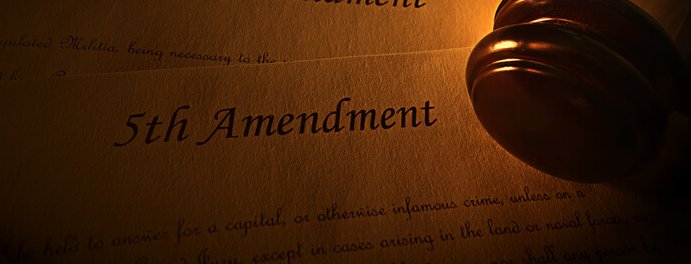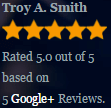You’ve probably watched a movie where one of the characters utter the cliche line about how they want to plead the fifth while sitting on the stand in a courtroom. The concept of using the Fifth Amendment in court is one that has always held a fascination when it comes to fiction. However, it’s not left in just courtrooms setting up a mystery drama. This legal concept happens in real life to protect a person. Learn about what it means to plead the Fifth and how can it impact you and your case.
What Is the Fifth?
Pleading the Fifth comes from the fact that it’s the Bill of Rights Fifth Amendment. The Fifth Amendment has several protections in it for citizens. Double jeopardy or being unable to be tried or punished twice for the same crime is one of these protections. Having the right to a grand jury is another right the Fifth grants. When pleading the Fifth on the stand, you’re using your right against self-incrimination. That means that you don’t have to admit under oath to criminal actions in your past. As they may be put against you during the current trial or a future criminal trial. In addition, a jury receives instructions to not consider whether or not the defendant takes the stand in their own defense during a trial as a sign of guilt.
Why Is This an Important Part in a Court Case?
Understanding your right to invoke the Fifth when testifying is an integral part of a court case because it can help protect your future. Anything that you say while under oath during a trial could be used against you during the trial or after the trial. This fact means that saying something that implicates you in a crime could be against you to charge you with the crime you talk about under oath. The Fifth Amendment allows you to avoid this circumstance when invoking it.
What Are Instances in Which an Attorney May Advise You to Plead the Fifth?
An attorney may advise you to plead the Fifth if the testimony that you’re going to give the court could be used against you in the future. If no charges exist or charges are pending for a criminal act, speaking on the stand about your involvement could be evidence in your trial. Your attorney will weigh the pros and cons of you taking this stance while on the stand. They will help you to determine the best path forward.
Who Can Plead?
There can be some misconceptions regarding who can plead the Fifth, and when they can do so. Some confuse it with invoking your right to counsel after an arrest. When you’re under arrest, you can request that your attorney be present while the police question you. This protection is in place as they can advise you on how best to respond to the questions police present during the interview. In the case of invoking your right to counsel, you must do so explicitly. Once you’ve done that, the police can no longer ask you questions until your lawyer arrives. If you don’t ask for your lawyer clearly, the courts could rule that you didn’t invoke your right to an attorney.
Now, pleading the Fifth involves several specifics for a person to enable it for their rights. The first is that you have to be on the stand as a witness during a trial. It must also be a criminal trial unless an interrogation is underway by someone who is a member of a governmental agency.
Not Just for Defendants
The person on trial is not put on the stand to testify during their trial, so it seems at first glance that this isn’t a useful tool. However, there are some circumstances where it may be used. For instance, if a person is called as a witness where they could implicate themselves in the crime, they could invoke their Fifth Amendment rights. A conspiracy trial may have several individuals called as witnesses who were suspected of being part of the conspiracy. Those witnesses can protect themselves from further charges by pleading the Fifth.
Keeping that in mind, a person doesn’t necessarily have to plead the Fifth regarding a crime currently on trial. As any incriminating testimony is open to use at a later date, you can use the Fifth even if the criminal conduct is separate from the current charges.
Are you in a situation where you’re considering pleading the Fifth to protect yourself? Do you require advice on whether or not this is right for your case? Contact the Law Office of Troy A. Smith today to discuss your upcoming criminal case with a professional experienced in these matters. We can help you to use the Fifth Amendment to protect yourself when you are a witness in a trial.












